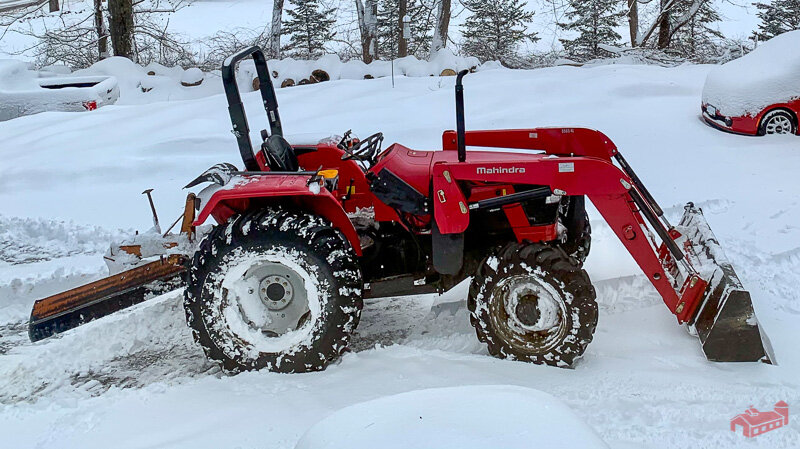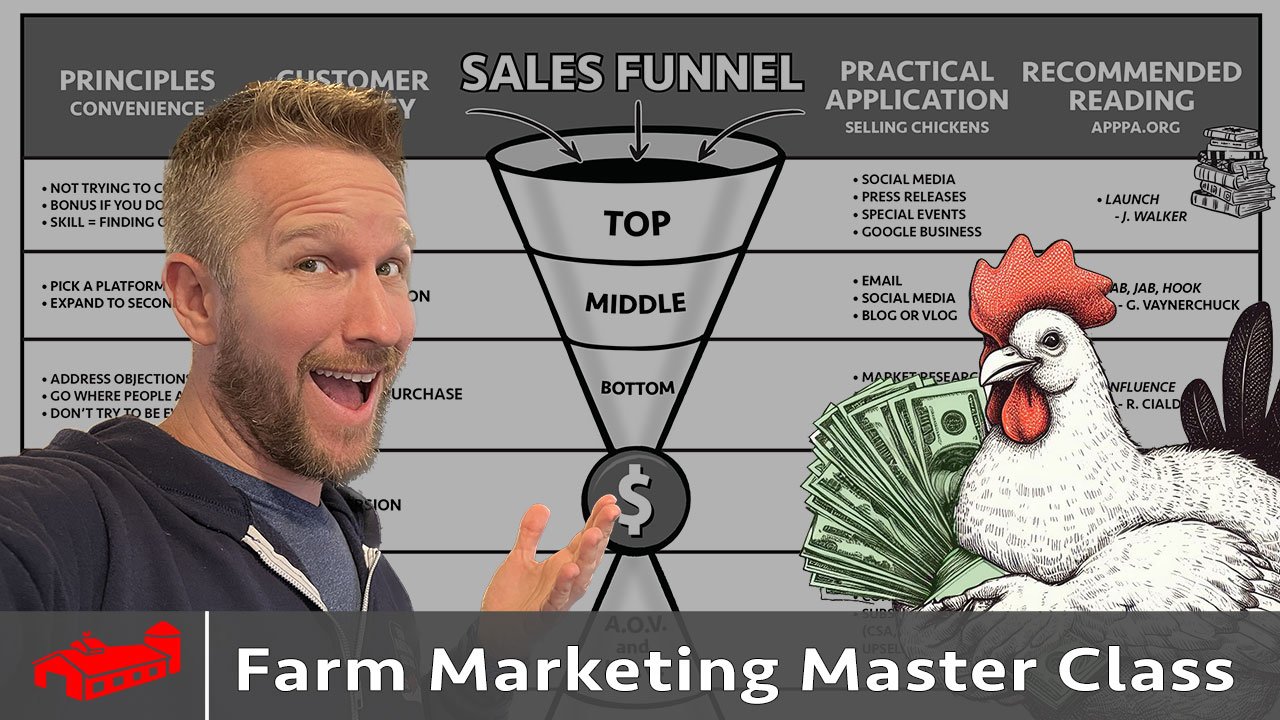Do you need a tractor to start a farm?
I’m a regular reader of the Facebook group on homesteading and small farms, and I’ve noticed that one of the most frequently discussed topics there is farm equipment, with many questions about exactly what gear to use. Typical posts include: Do you need to buy a tractor? What tractor should you get? There are two reasons this topic is so popular:
We’re a bunch of gear-nerds, and we love talking shop
We are trying to vet our decisions before we make an investment
In this episode of From The Ground Up we are going to discuss the factors that determine whether your farm needs a tractor, and, if so, how to decide which tractor to buy. We will also introduce a research strategy which will be valuable in making a decisions about any piece of small farm equipment.
Does owning a tractor make you money?
As a general rule, a tool has to help bring in more money then it costs, or it is not worth having. It’s no different for farm equipment: Such gear should either make you money, or bring tangible value to your life; if it does neither of those things, then it is a waste of time, space, and energy.
Whether a tractor is new or old, big or small, it’s going to cost you money, and it’s going to keep costing you money. After the initial purchase, there are the costs of fuel, taxes, ongoing maintenance, and sudden repairs – and the cost of lost productivity during downtime.
The operations that your tractor (or any equipment) undertake should offset labor costs, increase efficiency, or include tasks that you just otherwise could not do. If you don’t know what such things might be, or if you cannot yet quantify them, then you might not need a tractor.
What do you need your tractor to do?
The best solution to a given problem can best be determined when you can define the problem clearly – and you will be able to do that after suffering a little hardship, reflecting on that struggle, and then identifying the exact nature of the problem. That struggle takes all forms, from saying no to a project, to carrying buckets of water, to manual data-entry.
An example from John:
When my first tractor died a tragic death a few years back, I had a specific list of requirements for its replacement, based on what I’d come to know about my business operations. After years of getting by with the old clunker, I knew which aspects of a tractor were most crucial for my business.
One requirement was the ability to lift 2,800 lbs to a reasonable working height – at least 24”. In our brewery, dry grain is combined with hot water. After a combination of art and science, young liquid beer (wort) heads toward the fermentation tanks, but the by-product - Brewer’s Spent Grain (BSG) - is put into a bin and wheeled outside, to be picked up by the tractor.
Any tractor I purchased would need to handle the weight of the water, the grain, the bin, and the tractor forks. Without a tractor able to lift all of that weight, the grain would either be stuck at the brewery, or we would have to find a creative way to move it around the farm – a recipe for inefficiency!
This one specification limited any tractor purchase to a certain weight class and horse power range. There are many jobs for a tractor on our farm, but because this brewery task is so critical (Lifting and handling the spent grain saves us $10k a year in waste removal costs…), I needed to make certain that the machine I purchased could handle this job.
For the curious: I ended up financing a Mahindra 5570 with a 5565 loader for roughly $36k. 71HP, rated to 3200lbs of lift at the loader points. I have found it to be a decent machine for the price.
The Not-So-Hidden Costs of Owning Farm Equipment
Aside from the initial cost of purchasing a piece of equipment, you will incur many other on-going expenses. A short list of those costs include:
replacement parts
fluids
filters
specialty tools to perform repairs/maintenance
storage
time spent educating yourself
employee education & safety
the cost to future generations – including your own children – from burning fossil fuel, and thereby worsening the climate crisis
Each one of these factors comes with its own variety of costs. At times, it is a simple no-brainer to purchase a certain piece of farm equipment; at other times, you will spend months researching, calculating ROI, and lining up financing. This entire website could be dedicated to such factors, for each piece of equipment used on a small farm, and it would still only scratch the surface of all the things there are to know.
In order to help you make better decisions more quickly, we are going to end this episode by introducing a concept for learning all there is to know about farm equipment.
Just-In-Time Learning
Just-In-Time-Learning (JITL) is a strategy focussed on meeting the learner's need when it arises. The idea is simple: Do not bother with deep study of systems or details which you may never use; there is simply too much to know. Instead, focus on the problem in front of you, and then use the tools available to you to make an informed decision.
What makes Just-In-Time Learning possible is our modern access to information through the internet. With the world readily available at your fingertips, you can safely put off the memorization of details, knowing you can learn what you need when the time comes.
Just-In-Time Learning helps you avoid being overwhelmed, lets you focus on a problem, and still get stuff done. This methodology is applicable to buying farm equipment, using farm equipment, and repairing farm equipment. You will learn to focus on the problem in front of you, make an educated decision, and move on to the next task.
The bad news: There is no way you can know everything about farming before you actually start farming. In fact, even after you have been farming for over 10 years, as John has, or for over 30 years, like his mentor Troy Bishopp, there will still be lessons to be learned. You will never know it all, and you will never be completely prepared.
The good news: You will learn to embrace the philosophy that life is a process of continual improvement. In doing so, you will find balance in your life by embracing the process, rather than the goal. The goal helps guide the process, but the steps of the process provide moments of happiness which make this all worthwhile.
From The Ground Up is structured to be an easy-to-search platform for small farms and farmers who are applying JITL. It is a media-rich library of useful resources, aggregated and organized for the day you need them.
We hope you find happiness in all of your pursuits, and we hope this information reached you – even if just in time…
Other Resources
Books That Will Prove Valuable
Every Tool’s A Hammer - Adam Savage
This book is a mixture of philosophy and solid “how-to” information from one of the great Makers of our time.
Backstage Handbook: An Illustrated Almanac of Technical Information
An unlikely addition to a farming website. This books has proven to be a field manual for many projects on and off the farm. A carry-over from John’s previous career.







